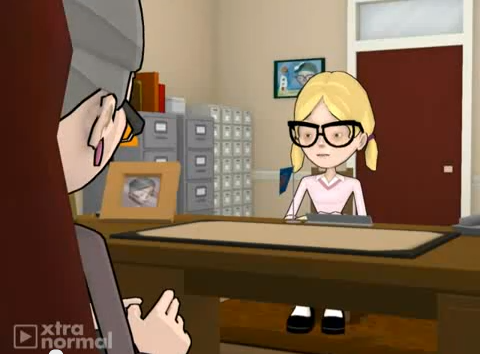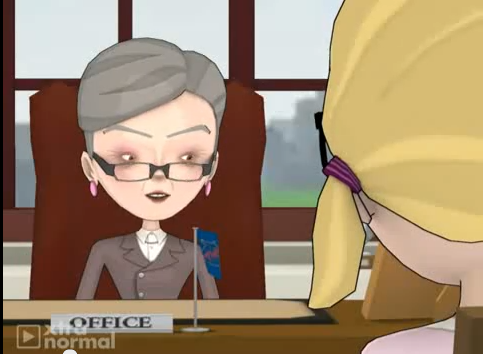The state of split consciousness in the humanities is illustrated by a semi-comedic animated video turned sensation, called “So you want to get a PhD in the Humanities.” It was released on YouTube in October 2010, and would go on to more than 740,000 views, which is quite a success for an academic milieu that only has about 1.48 million teaching staff altogether. In my own circles, the video is fairly well known, and it seems to have spread rapidly across online social networks, even spawning a number of spinoffs.
In cartoon fashion, with computer-generated, half-robotic voices, the video shows what happens when a young woman student comes to her professor’s office. She is there to ask for a letter of recommendation to graduate school in English literature, and the professor tries to talk her out of it, citing a host of practical and experiential reasons why it is “not a good idea” to go to graduate school. But the professor discovers at each turn that the student is incapable of hearing her objections. Rather than reconsidering her decision, the student takes every opportunity to voice her ardent desire for a clichéd “life of the mind.”
Professor: So you said you want to meet with me today.
Student: Yes. I am going to grad school in English.
Professor: No. I don’t think that’s a good idea.
Student: Yes. I am going to be a college professor.
Professor: Do you see where I am teaching? We’re in the middle of Nowhere, Nebraska. Do you want to move to the middle of nowhere to teach?
Student: I got an A on my Hamlet paper. I have brilliant thoughts about the theme of death in literature.
Professor: In all of literature? What field do you intend to specialize in?
Student: All of it. I’m going to be a college professor. I’m going to write smart things about death in literature.
Professor: Do you know how many admissions committees are going to laugh at your application?
We begin with a familiar enough institutional situation. The student has a plan for her academic future, for which she needs her professor’s help. The professor dislikes the plan, and tries to switch scripts to a different, more advisory encounter, where her superior expert knowledge and her moral authority might trump her student’s wishes. The student, in turn, responds to her professor’s discouragement the only way she can. She does not dispute the facts, since she has no resources for doing so; nor does she dispute the professor’s moral authority, since the very premise of this encounter is that she admires and covets her professor’s elevated role. Instead, when the student’s affirmative “Yes” meets an immediate “No” from above, she responds by gazing steadily back at the professor and flatly contradicting her in turn, standing by her image of an academic future, reiterating her desire. Neither party wants to change her views. They are immediately at a standoff. Continue reading “False consciousness in the humanities”

